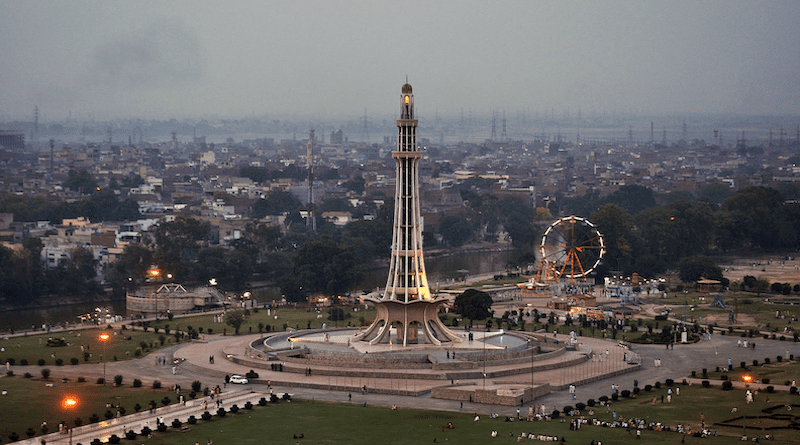Assessing The Damage: How Political Instability In Pakistan Impacts Its Global Reputation – OpEd
By Saba Kiran
Pakistan has a protracted history of political unrest. Numerous crises have recently affected the nation, notably the no-confidence vote that resulted in Imran Khan’s resignation as prime minister in April 2022. The ongoing political unrest in Pakistan is damaging the country’s reputation abroad for a range of reasons.
First, investor trust in Pakistan has decreased as a result of the turmoil. Investors are worried about the stability of the nation and the capacity of the government to carry out its plans, which is why this is the case. Second, Pakistan’s standing as a trustworthy partner has been tarnished by the disarray. This is due to the nation’s recent inability to keep up a consistent foreign policy. Third, Pakistan’s soft power has decreased as a result of the disarray. This is because the nation is no longer seen as a dependable and trustworthy partner, which makes it less able to sway the global community.
Undoubtedly Pakistan’s reputation has suffered as a result of the attack on the home of Lieutenant General Nadeem Anjum, head of the Pakistan Army’s Southern Command. The blatant act of terrorism that resulted in seven deaths and several injuries was directed against a top military leader. It serves as a reminder of the persistent terrorist danger in Pakistan and casts doubt on the nation’s capacity to safeguard its people. The incident has also undermined Pakistan’s standing as a trustworthy ally in the war against terrorism. Although Pakistan has been a crucial partner of the United States in its war on terror, the incident raises doubt on Pakistan’s dedication to the cause. It has also diminished Pakistan’s reputation as a secure destination to do business and invest.
Pakistan’s government has denounced the incident and pledged to hold those responsible accountable. However, restoring the nation’s reputation abroad would be difficult. The strike has shown that Pakistan is still battling terrorism and that it would take time to persuade the outside world that the nation is secure. The present state of Pakistan’s politics is causing the nation’s reputation to suffer on a global scale. This is probably going to have a lot of bad effects for Pakistan, including a drop in foreign investment, a drop in credibility, and a drop in soft power.
Here are some particular examples of how Pakistan’s image abroad is being harmed by the present political shambles:
The trust of investors is slipping. Investors are worried about the stability of the nation and the government’s capacity to carry out its plans. As a result, foreign investment is declining, which is detrimental to Pakistan’s ability to build its economy. Pakistan’s standing as a dependable partner has suffered. In recent years, the nation has struggled to keep up a coherent foreign policy. As a result, Pakistan is finding it increasingly difficult to forge alliances with other nations and advance its interests globally. Soft power in Pakistan is waning. The nation is less able to sway the international community since it is no longer seen as a dependable and trustworthy partner. As a result, Pakistan is struggling to draw in visitors, students, and companies.
It is urgent to address the severe issue of the present political unrest in Pakistan. To regain stability and repair its image, the government must take action. This will need a dedication to responsibility, openness, and good governance. In order to identify common ground and forge a consensus on the best course of action, the administration will also need to collaborate with the opposition. A thorough, diverse strategy is necessary to address Pakistan’s political unrest.
In order to reduce political turmoil, one of the most important stages is to develop diverse society and governmental institutions. This entails creating an impartial judicial system that can hold people responsible regardless of their social or political standing. A free media is essential for maintaining an atmosphere where information flows freely so that people may remain informed and exercise their democratic rights. Developing a strong civil society may serve as a watchdog, keep the government responsible, and take an active role in social changes.
It is critical to address any underlying structural problems causing political instability. Constitutional changes may be necessary to address fundamental flaws in the political system, such as issues with the election process or an unbalanced distribution of power among the three institutions of government. The preservation of democratic ideals and the wide range of requirements of the populace of the nation should be taken into consideration when these changes are carefully evaluated and put into action.
The key is a continuing, open debate with all political parties, the civil society, and other interested groups. Constructive involvement may aid in building a more cooperative political environment, defusing tensions, and forging agreement on important national problems. It is possible to establish a more representative and fair decision-making process by including various views in these discussions.
Political problems may sometimes be made worse by economic uncertainty. Implementing measures to promote economic development, lessen poverty, and fight corruption may thus make a big contribution to political stability. This might include encouraging fair trade, supporting regional businesses, enacting sensible tax laws, and giving social safety nets for society’s most disadvantaged groups first priority.
Finally, Pakistan’s commitment to stability and cooperation may be reassured by its active and purposeful engagement with the world community. Regular diplomatic interactions, membership in international organisations, and the encouragement of peaceful bilateral and multilateral partnerships may all be part of this. Pakistan’s reputation overseas may also be enhanced by demonstrating a commitment to international standards and agreements.
In the end, dealing with the political disarray is a difficult undertaking that will take time. The dedication and determination of political leaders, the tenacity of institutions, the engaged engagement of civil society, and the understanding and support of the global community will all be necessary for these tactics to succeed.

